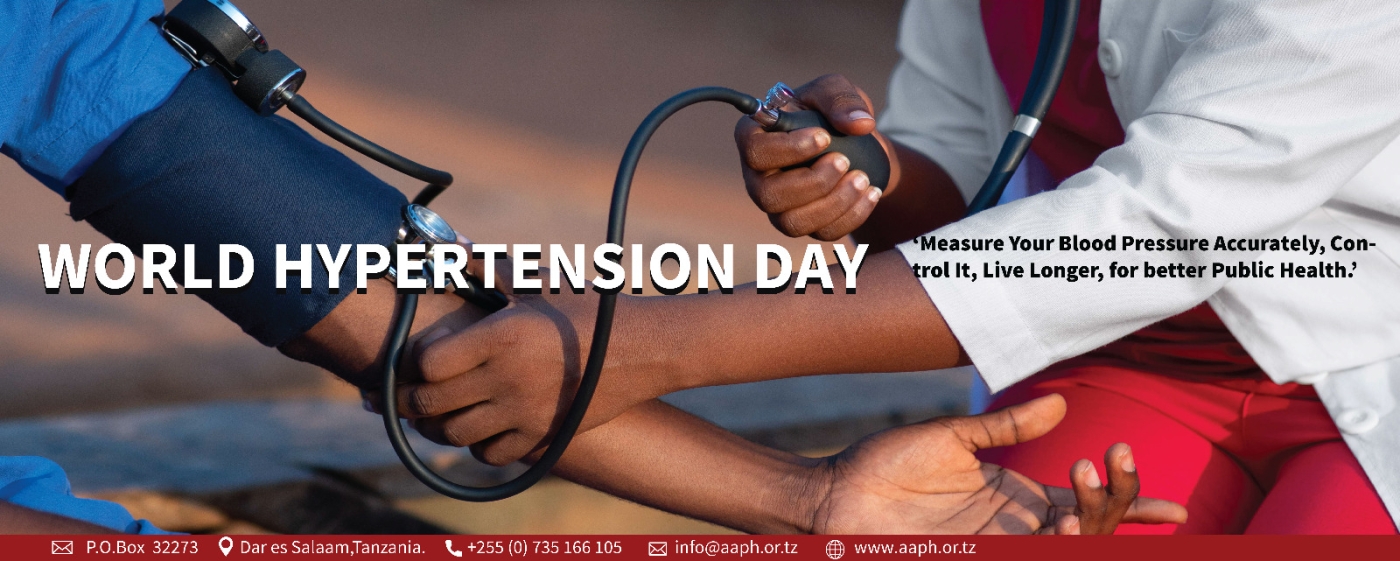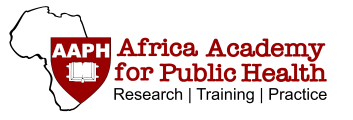
Blood pressure (BP) is written in a two numbers’ format (S/D). The first number (S) is the blood pressure when the heart beats, and the second number (D) is the blood pressure when the heart rests. High blood pressure, or hypertension, is a condition where the force of blood against the walls of blood vessels is too high. This is diagnosed when your BP measures more than 140/90 on two different days. If not treated on time, hypertension can cause problems like kidney disease, heart disease and stroke. With hypertension you might not feel sick at all, in order to know you need to check your blood pressure regularly.
In Tanzania, hypertension is a growing public health problem. According to a study by the Africa Academy for Public Health (AAPH) about 3 out of 10 adults in Tanzania have hypertension and majority of them are unaware[1]. One of the major risk factors of hypertension is poor nutrition, which includes consuming too much salt, fat, and sugar, with no enough fruits and vegetables.
To prevent and control hypertension, it is important to eat a balanced and healthy diet. The World Health Organization (WHO) recommends limiting salt intake to about one teaspoon a day and also avoiding processed foods that are high in salt, such as canned foods, snacks, sauces, and condiments [2]. In effort to make sure we have a community that is well equipped with nutritional knowledge and skills, AAPH has been implementing several projects which aim at improving nutrition among adolescents in Tanzania. Some of the projects are the MEGA (School gardening) project and Rutubisha Afya (multivitamin supplementation). Adolescents are a potential gateway for propagating nutrition knowledge to peers and respective households in the community for better Public Health.
In addition to eating a healthy diet, it is also important to do regular physical exercise, check blood pressure regularly and seek medical help if abnormal (high/low).
Hypertension can be treated with medication and lifestyle changes such as quitting cigarette and shisha[3] smoking, reducing alcohol intake, exercising regularly, managing stress, and maintaining a healthy weight. World Hypertension Day is an opportunity to spread the message for prevention and control of high blood pressure.
Measure Your Blood Pressure Accurately, Control It, Live Longer.
For better Public Health
[1] Muhihi AJ, Anaeli A, Mpembeni RNM, Sunguya BF, Leyna G, Kakoko D, Kessy AT, Mwanyika Sando M, Njelekela M, Urassa DP. Prevalence, Awareness, Treatment, and Control of Hypertension among Young and Middle-Aged Adults: Results from a Community-Based Survey in Rural Tanzania. Int J Hypertens. 2020 Sep 3;2020:9032476. doi: 10.1155/2020/9032476. PMID: 32963821; PMCID: PMC7491449.
[3] Azar, R.; Frangieh, A.H.; Mroué, J.; Bassila, L.; Kasty, M.; Tohmé, J.; El-Khoury, N.. PP.30.06: EFFECTS OF SHISHA SMOKING ON BLOOD PRESSURE AND HEART RATE. Journal of Hypertension 33():p e400-e401, June 2015. | DOI: 10.1097/01.hjh.0000468630.29433.8b
